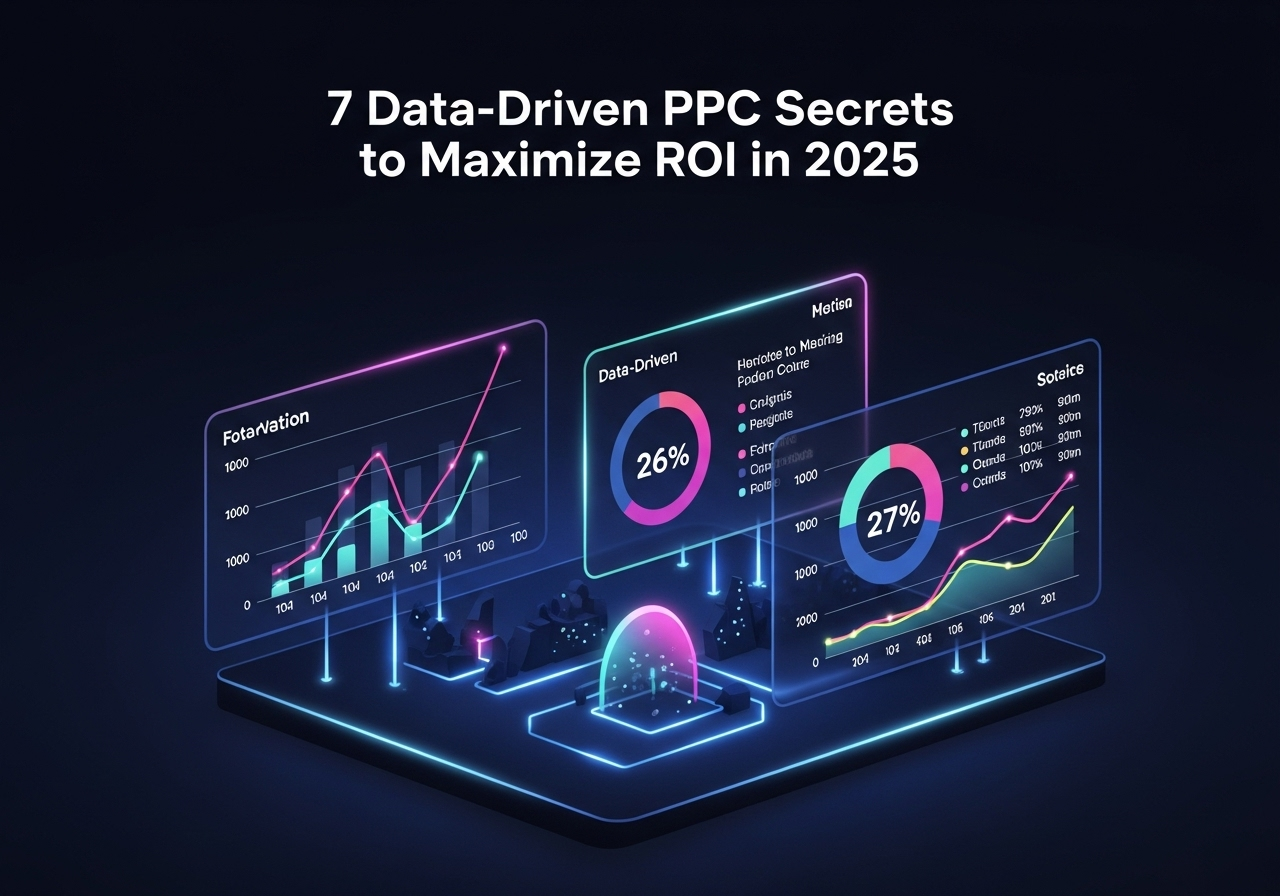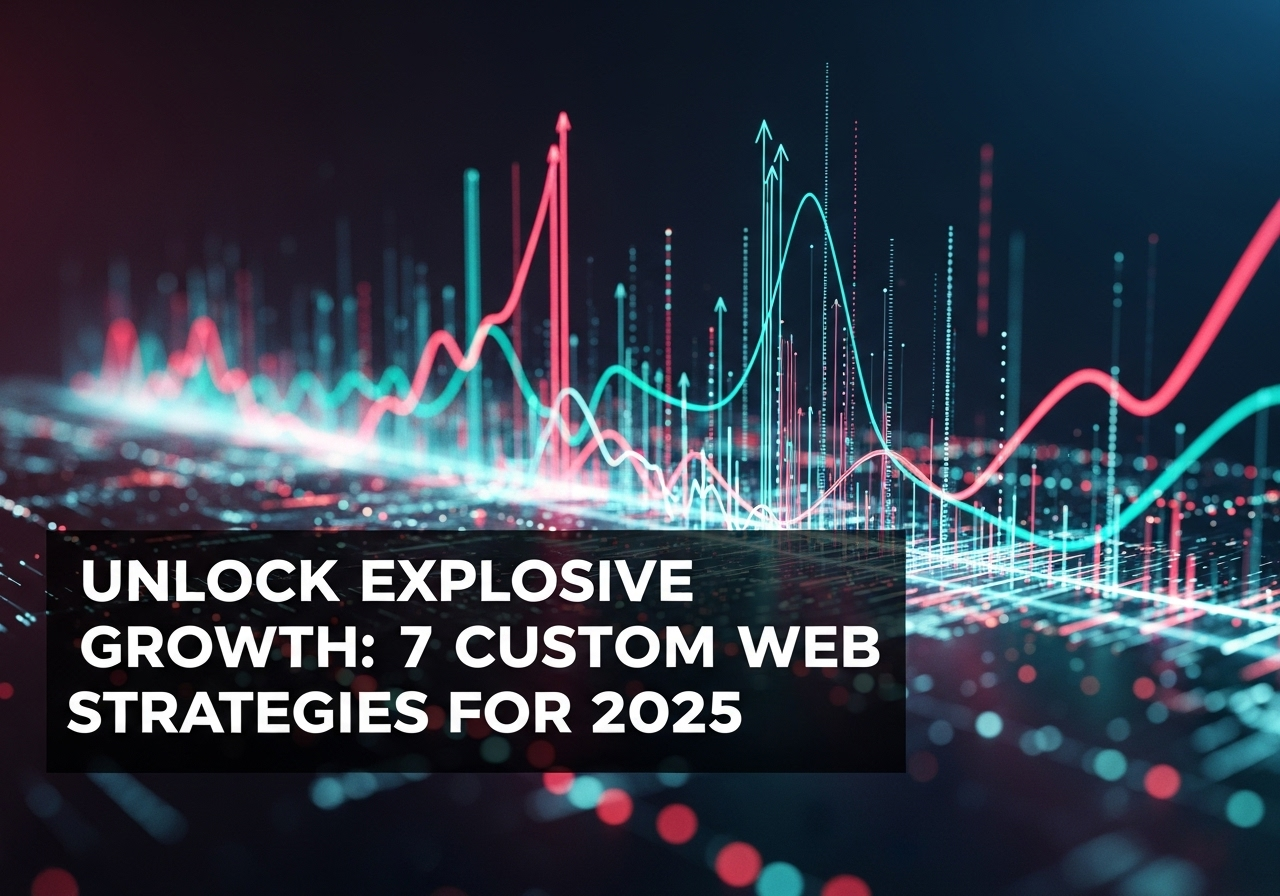Unlock the Power of Data in Your PPC Campaigns
Did you know that average PPC costs have surged by 15-30% in 2025? At the same time, third-party data is becoming increasingly scarce. Consequently, if your paid search strategy is stuck in the past, you are likely wasting your marketing budget and seeing conversion rates plummet.
In fact, today’s digital marketing landscape, as managed by experts at CDM Suite, isn’t about how much data you can hoard. Instead, success now hinges on how fast you can turn that data into action. Moreover, it’s about how effectively that action connects with your audience. As a result of tightening privacy regulations and fierce competition, a genuinely data-driven approach to PPC is no longer a choice—it’s essential for survival.
The Evolved State of Data-Driven PPC in 2025
The days of simply collecting vast amounts of data are behind us. Indeed, today’s successful PPC management requires sophisticated systems that can process information in real-time. These systems must deliver actionable insights that drive performance.
What Modern Data-Driven PPC Really Means
Essentially, modern data-driven PPC management is about using real-time behavioral signals—like clicks, calls, and chats—to shape content and targeting in the moment. It’s about creating a cohesive strategy that connects all touchpoints, delivering personalized experiences that convert.
The stakes have never been higher. Today’s PPC managers are navigating:
- Complex, cross-channel customer journeys across multiple devices.
- Stricter data privacy laws that limit tracking capabilities.
- Rising costs per click on major platforms.
- Demand for instant personalization from savvy consumers.
- AI-powered competition that optimizes in real-time.
The Privacy Challenge
With Google’s approach to third-party cookies remaining in flux through 2024 and into 2025, marketers have been forced to adapt. Therefore, developing more resilient tracking and targeting strategies has become paramount. This significant shift has made first-party data collection more valuable than ever before.
7 Essential Data-Driven PPC Strategies for 2025
1. Centralize Your Data Infrastructure
First, the foundation of effective data-driven PPC is a centralized data hub. This is where your CRM, analytics, ad platforms, and call data can communicate seamlessly. This integration eliminates data silos and provides a complete view of customer interactions.
Implementation Steps:
- Connect your CRM system with your advertising platforms.
- Implement server-side tracking to maintain data quality.
- Create unified customer profiles that track interactions across channels.
- Develop dashboards for real-time visibility into campaign performance.
2. Leverage AI for Active Decision-Making
In 2025, AI has evolved from a passive reporter to an active participant. Specifically, leading marketers now use AI to predict creative performance, automate bidding, identify new keywords, and allocate budget based on performance forecasts. Don’t let AI become just another tool; empower it to drive your strategy.
3. Implement Advanced Predictive Analytics
The future of PPC measurement lies in understanding not just what happened, but why. Sophisticated managers now use multi-dimensional persona modeling to anticipate user intent. This includes mapping dynamic personas and fusing cross-channel intelligence for actionable insights.
4. Optimize for the Entire Customer Journey
Successful PPC in 2025 requires optimizing the complete customer journey, not just single clicks. This means recognizing that offline conversions often start online and personalizing messaging based on recent interactions. For example, context is currency in modern PPC; treat your customers accordingly.
5. Diversify Your PPC Platform Strategy
With costs rising on Google, it is wise to diversify your PPC efforts. This approach helps reduce acquisition costs and reaches audiences at different stages of the buying journey. Therefore, explore opportunities on Microsoft Advertising, Amazon Ads, and LinkedIn to decrease dependence on a single platform. For more strategies, check out our blog.
6. Adopt a First-Party Data Framework
As third-party cookies phase out, a robust first-party data strategy is critical. You can achieve this by creating interactive tools, developing valuable gated content, and implementing enhanced conversion tracking. Ultimately, this data becomes the foundation for more effective targeting and personalization.
7. Structure Campaigns for Maximum Efficiency
A poorly structured campaign wastes money. In 2025, the most efficient structures include dedicated campaigns for:
- Branded Keywords: To protect your market share.
- Competitor Keywords: To strategically capture their audience.
- Generic Keywords: To target high-converting, non-branded search terms.
Essential PPC Metrics to Track in 2025
To truly embrace data-driven PPC, you must track the right metrics. Beyond the basics, focus on:
- Customer Acquisition Cost (CAC): How much you spend to acquire each new customer.
- Lifetime Value (LTV): How much you can afford to spend while maintaining profitability.
- Return on Ad Spend (ROAS): The revenue generated for every dollar spent.
- Incremental Lift: The additional conversions generated only by your ads.
- Cross-Channel Attribution: How different channels contribute to conversions.
The Future of Data-Driven PPC Beyond 2025
Looking ahead, several trends will continue to shape PPC. These include enhanced AI integration, voice search optimization, stricter privacy regulations, and the need for advanced predictive modeling. Staying ahead of these trends will be a key competitive advantage.
Your Data-Driven PPC Roadmap
Implementing a truly data-driven PPC strategy requires a systematic approach. Follow these steps:
- Audit Your Current Data Infrastructure: Identify gaps in your collection and analysis capabilities.
- Develop a First-Party Data Strategy: Create value-driven opportunities to collect user data.
- Evaluate and Implement AI Tools: Select solutions that actively drive decision-making.
- Restructure Campaigns for Efficiency: Organize your campaigns to maximize budget and performance.
- Implement Cross-Channel Tracking: Ensure you can track user journeys across all touchpoints.
- Continuously Test and Optimize: Establish a regular cadence for testing and improving.
Data-driven PPC in 2025 is about transforming data into meaningful actions that drive results. By embracing these approaches, you can reduce wasted ad spend and achieve sustainable growth.
Are you ready to transform your PPC strategy? Find out EXACTLY what’s missing in your marketing with our free 3-minute assessment and get a custom growth plan!



